The expected speakers are as follows:
Raphael Vella, University of Malta, Malta.
Francesco Careri, University of Roma Tre, Italy.
Tamara Bračič Vidmar, Bunker Cultural Center, Ljubljana, Slovenia.
Alma Redzic Selimovic, Bunker Cultural Center, Ljubljana, Slovenia.
Petra Šobáňová, University of Palackého v Olomouci, Czech Republic.
Estibaliz Aberasturi, University of the Basque Country, Spain.
Speaker CVs
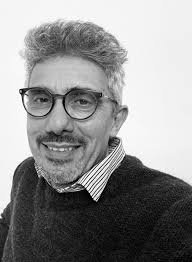
Raphael Vella is the author of "Documents of Socially Engaged Art. InSEA" and promotes numerous socially engaged art projects. http://raphaelvella.com/portfolio-type/dsea/ He is an artist, educator, and curator based in Malta. She has exhibited her work at international exhibitions and venues, including the Venice Biennale, Domaine Pommery (Reims, France), and Modern Art Oxford, and has curated numerous group and solo exhibitions in Malta and internationally. He was art critic for the Malta Independent between 1992 and 2000 and won the Commonwealth Art and Craft Prize (London) in 1998. He was an artist-in-residence at the University of Canterbury's School of Fine Art in Christchurch, New Zealand, for a year in 2000 and was a founding member of the StART artist group in the early 2000s. Raphael Vella was a Fulbright scholar in 2001 and has been teaching at the University of Malta since 2003. In 2012-13, he was the Arts Programme Director for the Valletta 2018 Foundation, the entity responsible for the European Capital of Culture in 2018. He has published numerous articles and catalogue essays on contemporary art, culture and education and has initiated many artistic projects, educational ventures and international exchanges that have contributed to transforming Malta's cultural scene, such as Divergent Thinkers, the Curatorial School, the Valletta International Visual Arts festival (VIVA) and numerous projects involving students. undergraduate and postgraduate courses at the University of Malta. In 2017, he co-curated (with Bettina Hutschek) the Malta Pavilion at La Biennale di Venezia. In 2019, he organized the InSEA Art Education: Conflicts and Connections seminar from 9 to 11 October in Valletta. From 2020 to 2023, he is coordinating a team at the University of Malta working on Acting on the Margins: Arts as Social Sculpture (AMASS), an international research project on socially engaged arts.

Francesco Careri, architect and associate professor at Roma Tre University, is known for his innovative work at the intersection of the arts, architecture, and social engagement. Co-founder of the Stalker/Osservatorio Nomade collective, he has created urban interventions focused on walking exploration as a form of critical and creative analysis of urban space. His book, "Walkscapes: Walking as an Aesthetic Practice," is an international reference in the study of walking as an art form, connecting nomadic practices with Situationist and Land Art theories. Careri directs the Laboratorio de Arti Civiche (Civic Art Laboratory), promoting participatory methods to transform marginalized communities through urban interventions based on exploratory walking. This approach has been central to projects such as Savorengo Ker (Everyone's House), built with the Roma community in Rome, and the Urban Regeneration Laboratory in Corviale, which seeks to integrate vulnerable communities into the urban fabric. His academic work is complemented by international research on human rights and inclusive urban planning, as well as the improvement of conditions for migrants and refugees through participatory urban planning. He is the director of programs such as the Master's in Performative Arts and Community Spaces, which unites art and community engagement, and the Environmental Humanities program, which connects architecture and sustainability. Recognized with awards such as the Rosa Barba Landscape Prize, Careri has led innovative research on "One to One" spatial pedagogies, promoting practical learning in real-world environments. These efforts consolidate his commitment to ethical and transformative urbanism, which redefines public space from an inclusive and artistic perspective.
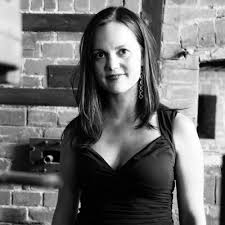
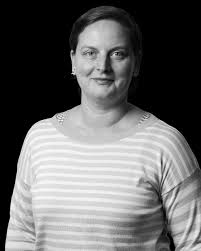
Tamara Bračič Vidmar and Alma Redzic Selimovic play a crucial role at the Bunker cultural center in Ljubljana , where they lead both local and international projects. Bunker, located in Ljubljana, Slovenia, was founded in 1997 as a non-profit organization dedicated to promoting contemporary arts, especially in the fields of theater and dance. Its focus is on the creation, production, and presentation of innovative works that address current social, political, cultural, and ecological issues. Furthermore, it fosters collaboration between artistic disciplines and the mobility of artists locally and internationally.
Since 2004, Bunker has managed the Stara Elektrarna (Old Power Station), a key cultural space in Ljubljana that hosts theatrical performances, workshops, artistic research, and interdisciplinary events. This venue also hosts prominent international festivals, such as Mladi Levi (Young Lions), held annually since 1998 and bringing together innovative artists from around the world.
Bunker has also led educational projects and international collaborations, such as the ACT (Art, Climate, Transition) program, which explores themes such as sustainability and ecology through art. It has also produced performances in collaboration with groups such as Betontanc and its spin-off project Beton Ltd., known for their physical and experimental approach to theater.
With a clear mission to push artistic and aesthetic boundaries, Bunker not only supports established artists but also fosters the development of new cultural perspectives. Its founder, Nevenka Koprivšek, who passed away in 2021, was a pivotal figure in revitalizing the Slovenian cultural scene and continues to be honored for her contributions.
Bunker continues to be a driving force of cultural innovation in Slovenia and a bridge between local and international communities, positioning itself as a benchmark for contemporary art and social engagement.
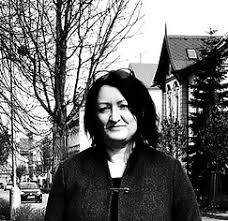
Petra Šobáňová, born in 1975 in Prostějov, is Vice Dean of the Faculty of Education at the University of Palackého in Olomouc (Czech Republic). She is a professor at the Department of Art Education, where she has worked since 2004. She specializes in the didactics of art education, focusing on the conduct and presentation of children's artistic expression, particularly in the field of extracurricular arts education. Her professional interests also encompass museum and gallery pedagogy, areas in which she has made significant contributions. In 2021, Šobáňová received the prestigious International Edwin Ziegfeld Award, presented by the United States Society for Education Through Art (USSEA), in recognition of her distinguished leadership in arts education. This award reflects her commitment to promoting arts education internationally. She has organized international conferences on art education and art exhibitions for young people, demonstrating her ability to foster academic and cultural exchange in this field. Additionally, she has coordinated projects such as the Corona Multimedia Showcase, an initiative highlighting youth creativity during the pandemic. Šobáňová has published extensively on the intersection of art education and museum pedagogy. Her book "Skola muzejní pedagogiky 1: Poznámky k partnerství výtvarné a muzejní pedagogiky" (2007) explores the collaboration between these disciplines, offering valuable insights for educators and museum professionals. Likewise, her book "Kapitoly z didaktiky výtvarné výchovy" (2006) provides an in-depth look at the didactics of art education, highlighting her innovative approach to teaching. From 1999 to 2006, she collaborated on the creation and implementation of art projects at the non-profit Studio Experiment Olomouc.
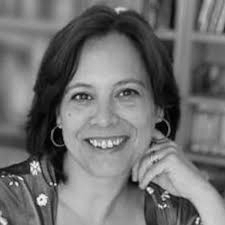
Estibaliz Aberasturi is a professor and researcher in art education at the University of the Basque Country (Spain). Her research and teaching career focuses primarily on teacher training, pedagogical innovation, and learning through the visual arts in educational contexts. She is Principal Investigator of the established research group ELKARRIKERTUZ (IT1586-22) Collaborative Research in Education. Her latest R&D project was "Learning Trajectories of Young University Students: Conceptions, Strategies, Technologies, and Contexts," funded by the Ministry of Science and Innovation.
In May 2024, she curated, along with other researchers and artists from the group, the exhibition "How Do You Learn at University?" at the Txillardegi Hall of the UPV/EHU (University of the Basque Country). This exhibition presented, in the form of an archive, research materials and works by various artists who explored the ideas and concepts about learning that emerged from the project. The exhibition hall was understood as a place of encounter and dialogue based on the works. She also coordinates the ARTikertuz learning community (artikertuz.es) (EHU15/24), which includes teachers from early childhood, primary, secondary, and university education. Through arts-based training experiences, she seeks to rethink education and collaborate with schools on artistic processes that explore pedagogical meaning and intent through mobilizing and impactful approaches. She currently serves as treasurer on the Board of Directors of SEA, the Society for Artistic Education, and is a member of REUNID, the University Network for Educational Research and Innovation, promoting Open Knowledge.





